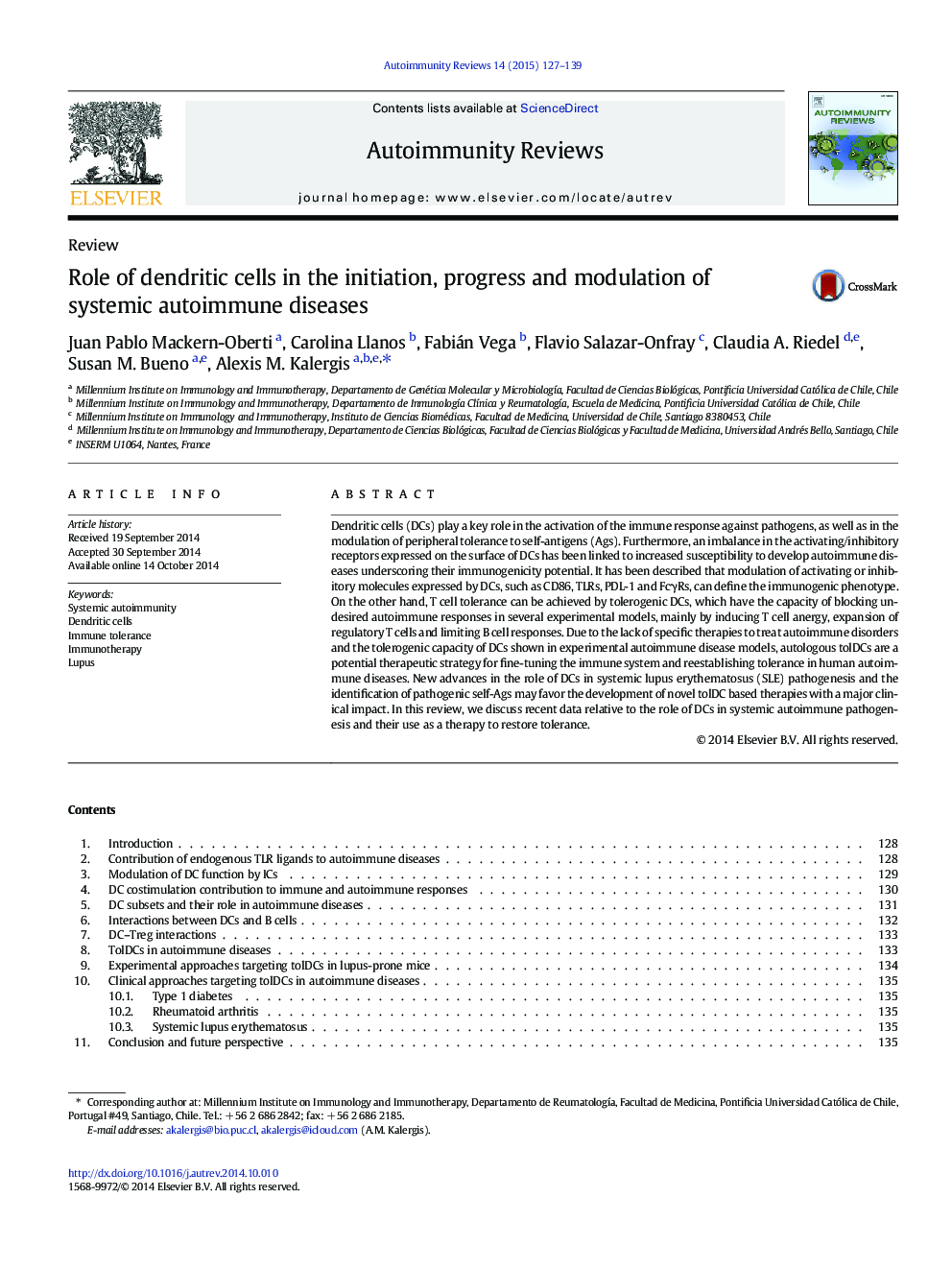| Article ID | Journal | Published Year | Pages | File Type |
|---|---|---|---|---|
| 3341484 | Autoimmunity Reviews | 2015 | 13 Pages |
•DCs are key in maintaining immunological tolerance.•Disruption of DCs function would lead to systemic autoimmunity.•Tolerogenic DCs is a new strategy for the generation of antigen-specific tolerance in autoimmune diseases.
Dendritic cells (DCs) play a key role in the activation of the immune response against pathogens, as well as in the modulation of peripheral tolerance to self-antigens (Ags). Furthermore, an imbalance in the activating/inhibitory receptors expressed on the surface of DCs has been linked to increased susceptibility to develop autoimmune diseases underscoring their immunogenicity potential. It has been described that modulation of activating or inhibitory molecules expressed by DCs, such as CD86, TLRs, PDL-1 and FcγRs, can define the immunogenic phenotype. On the other hand, T cell tolerance can be achieved by tolerogenic DCs, which have the capacity of blocking undesired autoimmune responses in several experimental models, mainly by inducing T cell anergy, expansion of regulatory T cells and limiting B cell responses. Due to the lack of specific therapies to treat autoimmune disorders and the tolerogenic capacity of DCs shown in experimental autoimmune disease models, autologous tolDCs are a potential therapeutic strategy for fine-tuning the immune system and reestablishing tolerance in human autoimmune diseases. New advances in the role of DCs in systemic lupus erythematosus (SLE) pathogenesis and the identification of pathogenic self-Ags may favor the development of novel tolDC based therapies with a major clinical impact. In this review, we discuss recent data relative to the role of DCs in systemic autoimmune pathogenesis and their use as a therapy to restore tolerance.
